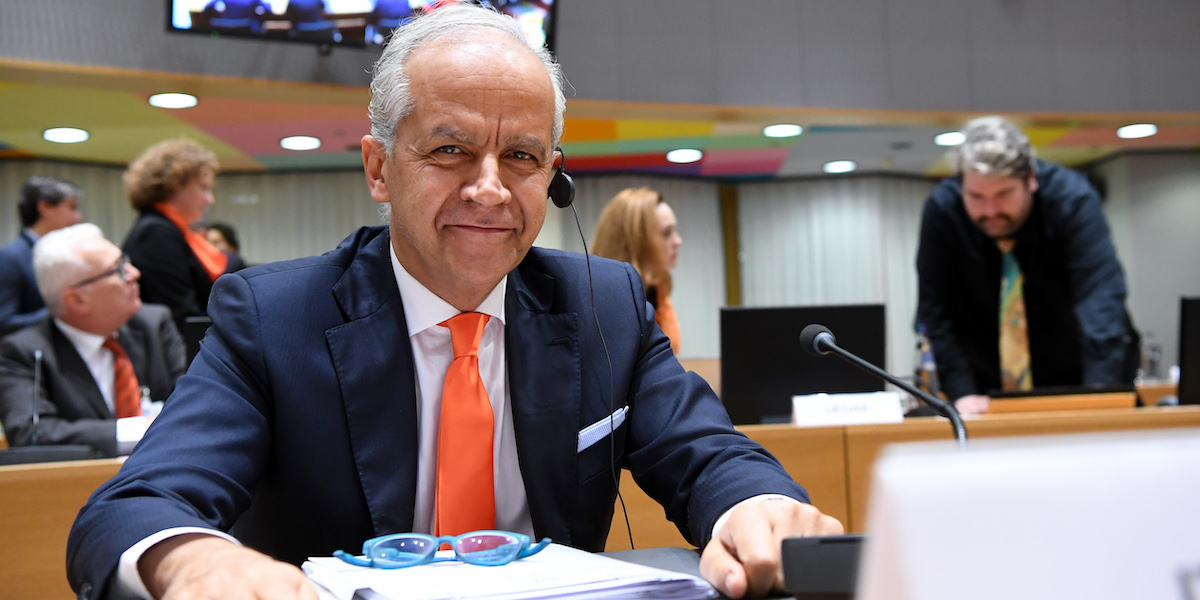On Thursday the interior ministers of the European Union countries met in Luxembourg in the Council of the European Union, the body in which sit the representatives of the 27 governments of the Union, they found an agreement on the reform of the Dublin regulation, the European standard that regulates the management of migrants and asylum seekers. The agreement was found at the end of many months of negotiations, but to enter into force it will have to be approved in the coming months by the European Parliament.
The contents of the agreement have not yet been disclosed by the Council: journalists who have read the drafts speak of a much less ambitious reform than the one proposed by the European Parliament in 2018 and never approved by the Council, i.e. by the governments of the Union.
The reform approved Thursday provides that in the event of large arrivals of asylum seekers, a quota will be transferred to other countries. However, not everyone will participate in these relocations: governments will be able to choose to pay a certain amount for each asylum seeker they do not accept. In the 2018 proposal, relocations were mandatory for all EU countries, a point strongly opposed by Eastern countries historically hostile to migration from North Africa and the Middle East.
Border countries such as Italy, Greece and Spain will then be asked to strengthen controls to avoid so-called secondary movements, i.e. the movements of asylum seekers towards northern countries: at the moment the Dublin regulation provides that the request of asylum is examined in the first country of entry, but these countries often let asylum seekers pass so as not to take on the burden of examining their applications.
Italy then had asked for greater guarantees on the so-called “third countries”, i.e. the countries of transit for migrants trying to arrive in Europe, to favor possible agreements on the management of migrants. Since 2017, Italy has had highly controversial agreements with the Libyan authorities for local militias to stop the departures of migrants trying to arrive by sea in Europe. Various journalistic investigations and international organizations have reconstructed that the Libyan militias manage detention centers for migrants where violence, torture and rapes are systematic. The so-called Libyan Coast Guard, financed by Italy and the European Union, intercepts and brings back to these centers the migrants it identifies off its coasts.
Apparently Italy has achieved that in the future these agreements can be simpler, as explained by Interior Minister Matteo Piantedosi. “We wanted no wording of texts that would weaken the possibility of making agreements with third countries, again in the implementation of the projection on the external dimension,” Piantedosi said at the end of the Council meeting.
In recent days, Prime Minister Giorgia Meloni made a state trip to Tunisia, which in 2023 became the main country of departure for migrants trying to reach Italy by sea. The government has hinted that it would like to negotiate agreements with Tunisia similar to those in force with Libya, which also provide for faster refoulement procedures for migrants who, on a superficial assessment, do not appear to have the requisites to be able to obtain asylum. Migration and reception experts have long believed that rules such as this could prevent an asylum request from being examined with the accuracy required by Italian and European rules.
The agreement found on Thursday will be discussed in the coming weeks by the European Parliament. There will be time until the first months of 2024 to definitively approve it: then the European elections will be held in June, with which the European Parliament will be renewed.
Today’s agreement was reached with an a vote qualified majority: not all countries voted for it. In recent years it was believed that the Council should express itself unanimously on the Dublin reform, as on all the most important reforms: it is not clear whether even for the final vote on the reform, if it is ever approved by the European Parliament, it will be sufficient a qualified majority.
